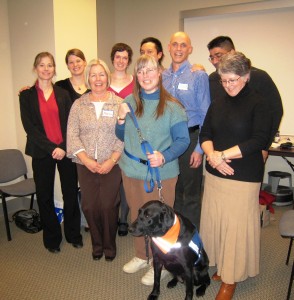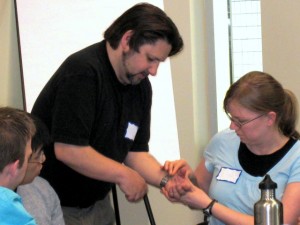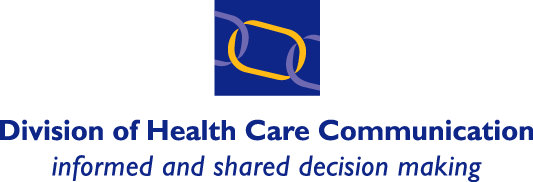The Faculty of Arts Academic Commuter Transition Program (FAACT)
An academic transition program for first-year Arts commuter students
In this interactive weekly 1 hr non-credit discussion group, participants receive personalized academic mentoring; access to resources and opportunities; connect with their peers, senior student mentors; and interact with faculty.
Why We Need It
- The Faculty of Arts is the largest student community on campus, and UBC has the longest commute of any Canadian University About 2/3 of first year UBC students get to campus by bus, driving, cycling—from all over the Lower Mainland.
- Their commutes range from 15 min. to 2 hours each way!
- FAACT helps: Addresses the specific transition needs of commuter students Facilitates a more seamless academic transition Provides first-year Arts commuter students with an opportunity to build a community on campus
How It All Works
Through FAACT, connecting commuter students to campus resources and other students is made easier, especially in their first year.
- Weekly learning team sessions (non-credit) of up to 20 students per section
- 12 student leaders lead 6 different sections, each with a faculty mentor
- There are currently 90 students enrolled in the program
- Students may continue, or begin, sessions in January
Purpose and Outcome
- Connect students to campus resources that support their learning and personal needs for their highest academic achievement
- Build supportive relationships with peers also facing similar issues around commuting and transition
- Encourage discussion and active participation in a class setting
- Facilitate student-faculty interaction and peer mentoring
- Encourage students to assess their learning and develop an academic plan that connects their learning to their current and future life experiences
- Foster connections with the Faculty of Arts, the campus and with high impact opportunities that promote learning and engagement
Student Leaders
Opportunity to develop and practice leadership and mentoring skills.
“It has made me more aware of the resources available and also it has helped me be more effective in my time management. I find that I apply what I teach more than I did before. I feel like I should lead by example so I am more organized.”
Student Comments
“I am really grateful for the student leader … and it was definitely extremely useful to me. They have introduced me to other ways of enhance my learning abilities (i.e. note-taking skills, time management). But I think that the most important thing is that I know someone in this huge university whom I can talk to and ask for advice whenever I need help (and those are my FAACT leaders!). They have been a really positive influence!”
“Its made things easier. University is a lot different from high school, so its nice being able to ask them about assignments, lectures, discussion, clubs. There’re like our guides; they help us feel more in control, like we belong, and less lost.”
“It was very helpful to get advice about what a professor is thinking during lectures, what they are hoping to get from students, how they grade, …and so many more issues. Hearing it from an actual prof was invaluable to me!”
A few numbers…
85% of FAACT participants said working with student leaders has positively affected their learning and transition and UBC.
72.4% indicated that the program resulted in their feeling more connected to the Faculty of Arts.
Questions?
Courtney McDonald
604.827.3610
courtney.mcdonald@ubc.ca
Timmy Wong
604.827.3579
timmy.wong@ubc.ca
Tracey Rollins
604.822.9196
tracey.rollins@ubc.ca
Visit us at the Center for Student Involvement
Brock Hall 1002
Musqueam & UBC – Bridge Through Sport Math & Science Club
The Musqueam and UBC Bridge Through Sport Math and Science Club was started in 2008 to support Musqueam youth age 7 to 12 in building their, interest, skills and competency in math and science. The partnership between UBC, the Pacific Institute for the Mathematical Sciences, and the Musqueam Indian Band is an afterschool club that brings UBC student volunteers from the Faculty of Science together with Musqueam youth to share their knowledge and enthusiasm learning about all things science.
Each weekly session of the club is two hours long. In the first hour volunteers lead hands on activities in science and math that have included, bridge building, take home gardens, animal welfare, and math mania.
Work!
UBC student volunteers and Musqueam youth work to explore math and science through hands on activities.
Learn!
Musqueam youth and UBC student volunteers, read, talk, and share ideas about our natural world.
Play!
Then we all run to the gym to scream, laugh and play.
Ryanne James
Bridge Through Sport Program Manager
UBC Office of Community Affairs
604-822-4755
Ryanne@interchange.ubc.ca
Community Partnerships for Health Professional Education

Students from 13 health & human service programs in 7 faculties at UBC have attended workshops taught by people with chronic conditions and other ‘expert patients’. These patient-led educational interventions are developed, evaluated and refined by students, community and faculty working together (participatory design). Students help to shape their learning environment. The community has a voice in training their future health care providers. Faculty learn how to engage the community to help students learn patient/client-centred care and skills for interprofessional practice.
“Just to hear the lived experience from someone’s mouth is always great … 10 minutes of that seems to be worth about 2 hours of it coming from an instructor’s mouth” (Occupational Therapy student, Mental health workshop)
“I really enjoyed that the teachers were patients, family members and partners. Seeing all of the different perspectives made me realize the extent to which epilepsy can affect someone’s life in many ways – financially, socially, emotionally.” (Medical student, Epilepsy workshop)

Our vision is to create a Community Centre for Health Professional Education to develop more opportunities for community involvement and collaboration.
Project Coordinator: Sarah Sparks
For questions, please call: 604-822-8002 or email isdm@interchange.ubc.ca.



